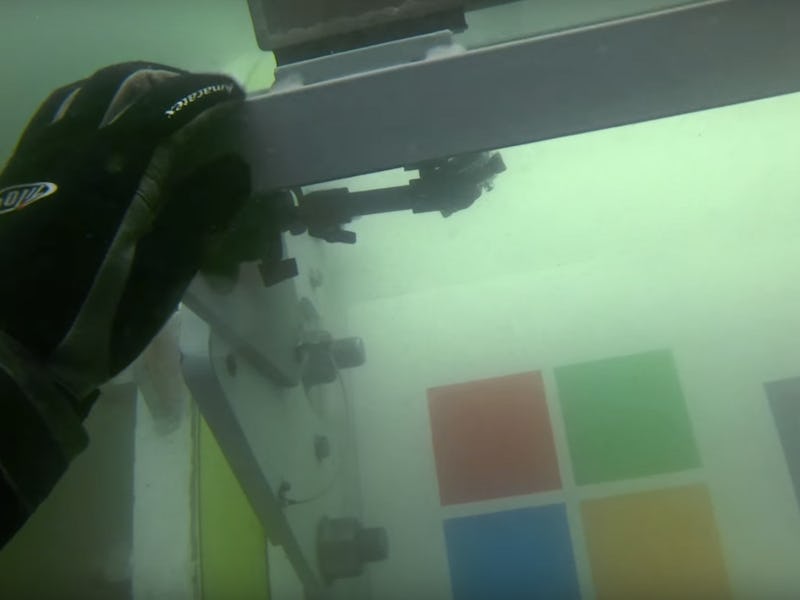Bill Gates Reminds Us of Project Natick, His Idea to Put Data Centers in the Ocean
The cloud is out at sea.

When you’re Bill Gates, you get to drop hints about technology that could revolutionize an industry without batting an eye.
Nestled in a USA Today story about the Bill and Melinda Gates Foundation’s annual letter, the Microsoft founder mentioned one awesome way the company he started is thinking about making data storage more energy efficient: Putting the massive computers under water. While the idea could not only work but also sounds futuristic and cool, Gates is characteristically subdued about betting on the untested.
Microsoft was talking about doing a data center under water (for heat reduction), which is being prototyped.
“I don’t know how well that will work,” Gates said.
Gates is referring to Project Natick, a Microsoft research initiative that has already placed a prototype data center about 1 kilometer beneath the surface of the Pacific. Underwater data storage would offset one of the most substantial costs both in terms of money and energy costs to running a data center: Keeping the computers from overheating, as the ocean water would keep the devices cool. The main question is whether you can keep them dry enough to function.
The idea of underwater data storage received its first promising result in 2013 when the company’s first submarine server performed better than expected. The crew then progressed to the current stationary, underwater data center, but the team has even more ambitious plans already available on the project’s website.
One of those proposals entails linking the data storage to some kind of tidal energy generator that would allow the devices to produce all the energy they need from the motion of the ocean. This technology would further reduce the cost of running a data center, as even the current prototype receives its power from conventional energy sources on land. They’re even thinking about tethering the data centers to the sea floors with long cords, so they can roll with the sea and capture more energy.
The crew will certainly have to face any potential environmental damage caused by these deep sea data centers. Many of our nautical environments face major threats from other human activities, like shipping, pollution, and overfishing. The Natick team will have to convince regulators that the benefits of energy savings counteract the threat the technology poses to more sustainable seas.
The Natick crew (From left to right: Eric Peterson, Spencer Fowers, Norm Whitaker, Ben Cutler, Jeff Kramer) with the prototype server.
The test is currently ongoing, so it remains to be seen whether the project will indeed take off. We’re not sure why Gates seems to be among the skeptics, because we sure as hell are not.
Bring on the sea servers, Natick team! If Gates doesn’t want you, we’re sure someone with a little vision will.
(h/t USA Today.)